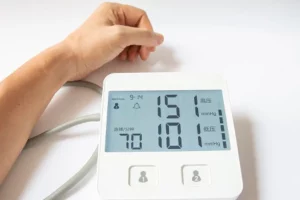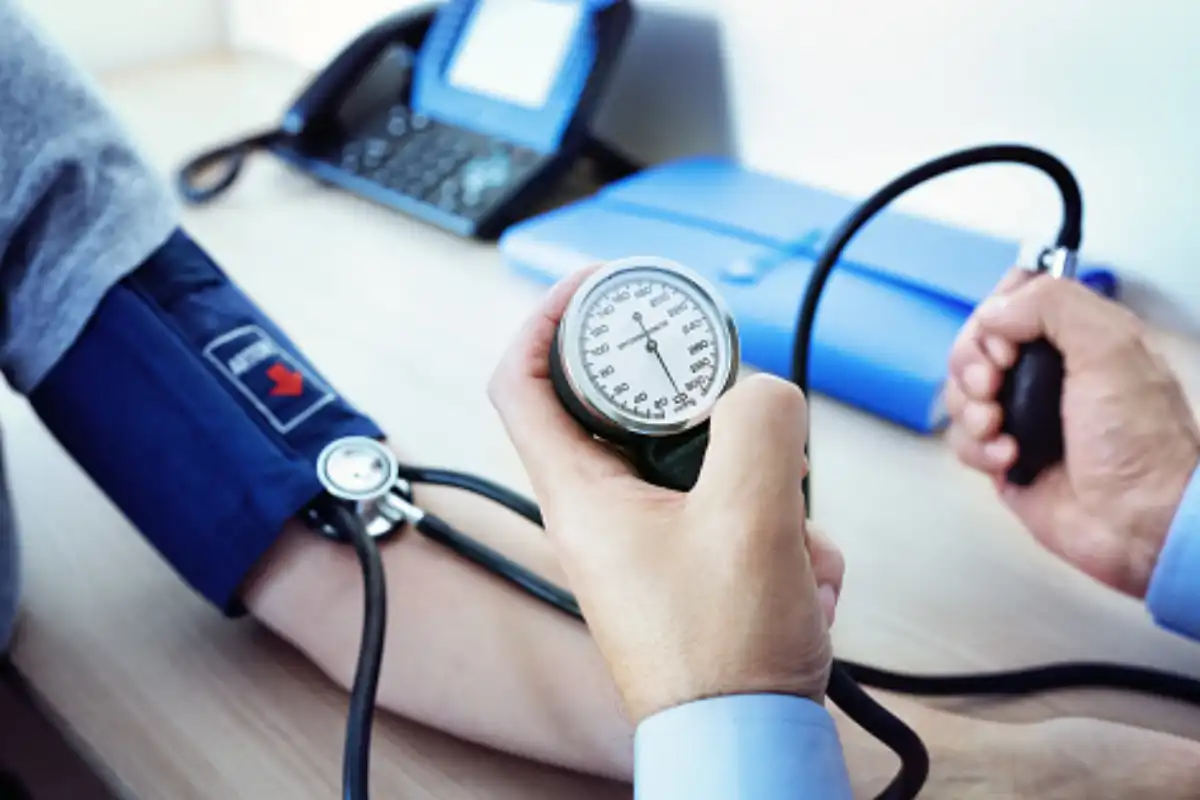Primary or Essential Hypertension
Most people who have hypertension have what is called primary hypertension or essential hypertension. This type of high blood pressure has no identifiable cause and usually develops gradually over many years. There are several reasons why primary hypertension can develop in a person, some of which are…
Your Lifestyle Choices
Lifestyle choices can play a major role in the development of hypertension. Eating an unhealthy diet, being overweight, lack of physical activity, smoking, and drinking too much alcohol can all lead to an increased risk of developing hypertension.

Your Genetics
Genetics can also play a role in the development of primary hypertension. People with a family history of high blood pressure are more likely to develop the condition themselves.
Your Age
Age is another factor that plays a role in the development of hypertension. As you get older, your risk of developing the condition increases.

Secondary Hypertension
Secondary hypertension is high blood pressure caused by an underlying medical condition or medication side effects. Some conditions that can lead to secondary hypertension include:
- Diabetes
- Chronic kidney disease
- Thyroid disorders
- Sleep apnea
- Congenital heart defects
- Adrenal gland tumours
- Atherosclerosis (hardening of the arteries)
Medication Side Effects
Certain medications can also cause secondary hypertension. This includes certain birth control pills, cold remedies, decongestants, and over-the-counter pain relievers.

Your Risk Factors
Other risk factors for developing hypertension include being overweight or obese, having high cholesterol levels, having a sedentary lifestyle, and drinking too much alcohol.
What tests are done to diagnose hypertension?
If your doctor suspects you have hypertension, they usually order a series of tests to confirm the diagnosis. These tests may include an electrocardiogram (ECG), an echocardiogram (echo), blood tests, and urine tests.
What can you do to prevent hypertension?
Stress reduction
Reducing your stress levels is one of the key ways to help prevent hypertension. Stress can cause your body to go into “fight or flight” mode, which increases your heart rate and blood pressure. Finding ways to manage stress through activities like meditation or talking with a therapist can be beneficial for those at risk of developing hypertension.
Having a healthy lifestyle
Making lifestyle changes such as eating a healthy diet, exercising regularly, and avoiding smoking and excessive drinking can help reduce your risk of developing hypertension. Eating plenty of fruits and vegetables, reducing your salt intake, increasing your fibre intake, and eating lean proteins are all helpful in achieving this goal.
Increasing physical activity
Regular physical activity is important for overall health and can help lower your risk of hypertension. Aim for at least 30 minutes of exercise daily, such as walking, running, biking, or swimming.
The DASH diet
The DASH (Dietary Approaches to Stop Hypertension) diet is an eating plan that helps reduce high blood pressure. The diet includes plenty of fruits and vegetables, low-fat dairy products, and whole grains. It also limits saturated fat and sodium intake.
Managing body weight
Being overweight or obese increases your risk of developing hypertension, so maintaining healthy body weight is important. Eating a well-balanced diet and engaging in regular physical activity can help you achieve and maintain a healthy weight.
Reducing salt intake
Limiting your sodium intake can help reduce your risk of developing hypertension. Sodium is found in many processed and packaged foods, so read food labels and choose low-sodium options when possible.
Quitting smoking and limiting alcohol
Smoking and too much alcohol consumption can also raise your risk of developing hypertension, so it’s important to quit if you are a smoker or drinker.
Regular check-ups
Staying up-to-date with your doctor’s appointments is also important in preventing hypertension. Your doctor can check your blood pressure, assess your risk of developing the condition, and ensure that any medications you take do not contribute to the problem.
Blood pressure monitoring
Monitoring your blood pressure at home is a great way to stay on top of your numbers and be aware of any changes. Your doctor can recommend the best monitoring device for you and provide instructions on taking readings correctly.
Know Your Blood Pressure Numbers
Knowing your blood pressure numbers is important to be aware of any changes in your readings. A blood pressure reading consists of two numbers – systolic and diastolic.
Systolic Blood Pressure
This is the top number and indicates the pressure in your arteries when your heart beats.
Diastolic Blood Pressure
This is the bottom number and shows the pressure in your arteries between heartbeats.
Normal blood pressure is typically below 120/80 mmHg.
If your reading is above this, it’s important to take steps to control your blood pressure and reduce your risk of developing hypertension.

Following these tips and lifestyle changes can help prevent hypertension and stay healthy. Consult our expert doctors at Akshom’s if you have any questions or concerns about your condition. They can work with you to create the right plan for you.




